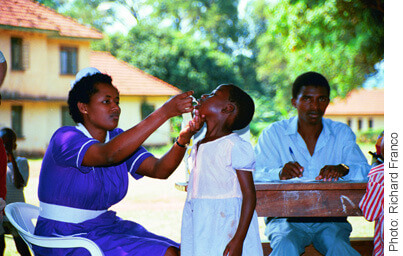Tricia AungPATH
Tricia Aung is a regulatory associate at PATH, a global nonprofit dedicated to ending health inequity.
In this guest post, Tricia Aung—the GHTC’s regulatory associate—writes about a new database that provides easy access to information on global health regulatory information.
Before they can improve the lives of patients and communities, new global health technologies must undergo rigorous testing and evaluation to ensure that they are safe and effective. National regulatory authorities—like the US Food and Drug Administration (FDA) in the United States—are responsible for protecting the public health throughout this process, making sure that clinical trials are conducted safely, and reviewing trial results to determine whether the benefits of potential products for the population outweigh the risks. Since many global diseases are endemic in countries with limited regulatory capacity, getting regulatory approval can be a huge roadblock to getting products clinically tested, manufactured, and delivered. Regulations vary by country, so developers of new vaccines, drugs, and other health products often face the challenge of understanding and juggling numerous sets of regulatory requirements. This is further complicated by the fact that in many developing countries, it can be difficult to find information on regulatory requirements.

The Global Health Regulatory Requirements Database, a new tool developed by the GHTC and supported by the Bill & Melinda Gates Foundation, is designed to help address this regulatory information gap. The database provides consolidated access to country-level regulatory requirements, thereby aiding product developers, multilateral organizations, and advocates with getting products through clinical trial approval and designing programs to strengthen regulatory capacity. Currently featuring 17 countries in Africa, Asia, and Latin America, the database is a central repository of high-level regulatory information and links to key guidance documents and regulatory resources. The database also offers users easy navigation from country to country and separates technology-specific information into three categories: drugs, vaccines, and diagnostics. Key data points include:
The database was designed to include a broad base of information, making it useful to many audiences. For example, researchers and regulatory affairs professionals can find the information they need to formulate effective regulatory strategies to gain approval to conduct clinical trials and market products. Creating a more informed, strategic regulatory plan that satisfies country requirements can help reduce regulatory delays that inhibit products from reaching people.
The database also promotes systemic change by capturing the current state of national regulatory authorities in developing countries. It can help guide advocates in efforts to develop advocacy strategies to improve and streamline global regulatory processes. Further, stringent regulatory authorities, such as the FDA, and public health organizations can use the database to identify opportunities to provide technical assistance at the country level to strengthen the capacity of regulatory authorities, and encourage harmonization and policy reform.
To deliver new health technologies to people as quickly and safely as possible, there needs to be a strong plan for regulatory approval and an enabling environment that supports regulatory review. The database can help address these needs and inspire lasting changes in the global health regulatory space.